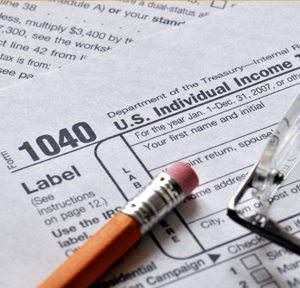Tax
US Tax "Gap" Reaches Highest Level, Shows More Enforcement Needed – IRS

The present administration has made much from its efforts to collect more revenue from HNW citizens, although data suggests that across the board, there's a significant problem with how taxes are paid and collected.
US tax collectors are planning to step up audits and other enforcement measures to close the largest-ever shortfall in revenues, according to the Internal Revenue Service.
US citizens didn’t pay an estimated $688 billion in taxes due on their 2021 returns – the largest shortfall ever recorded, the tax agency said.
"This increase in the tax gap underscores the importance of increased IRS compliance efforts on key areas," IRS Commissioner Danny Werfel, said. "With the help of Inflation Reduction Act funding, we are adding focus and resources to areas of compliance concern, including high-income and high-wealth individuals, partnerships and corporations. These steps are urgent in many ways, including adding more fairness to the tax system, protecting those who pay their taxes and [are] working to combat the tax gap."
In the early days of the Biden administration, it said it would strengthen enforcement efforts to collect more revenues from high net worth individuals, and others. Governments of all stripes in many Western nations have routinely called for more measures to squash forms of “harmful” tax avoidance, calls that have grown louder amid claims that the “1 per cent” don’t pay their “fair share” of total revenues. With budgets ravaged by the pandemic and its aftermath, and rising spending on areas such as social care and an aging population, pressure to intensify revenue collection remains high.
In a statement yesterday, the IRS said the “projected gross tax gap increased to $688 billion in tax year 2021, a significant jump from previous estimates.” It continued: “The gross tax gap is the difference between estimated 'true' tax liability for a given period and the amount of tax that is paid on time. The gross tax gap covers three key areas – non-filing of taxes, underreporting of taxes and underpayment of taxes.”
The IRS said its tax year 2020 and 2021 “gap” projections translate to about 85 per cent of taxes paid voluntarily and on time, “which is in line with recent levels.”
After IRS compliance efforts are factored in, the organization said that the projected share of taxes eventually paid is 86.3 per cent for tax year 2021, down slightly from the 87.0 per cent for tax years 2014 to 2016.
“This drop in compliance does not factor in any changes in compliance behavior; instead, it is due to changes in the types of income and how that income is reported to the IRS,” it said.
The gross tax gap has three elements: non-filing (tax not paid on time by those who don’t file on time); under-reporting (tax understated on timely filed returns), and underpayment (tax reported on time but not actually paid on time).
Such figures may also stir debate on whether the US tax code – like those of other major jurisdictions – is so complex that people can mitigate tax burdens via a number of loopholes. Sometimes the situation may prompt calls for flatter, simpler taxes, but that can also clash with demands for a more progressive system when wealth inequality is a hot-button political issue, as it has been in recent years.
On a state level, as noted here yesterday, California has cracked down on the use of out-of-state trusts to shelter income, a move that an advisor said will ultimately backfire.
The IRS said “third-party” reporting of income can improve voluntary compliance. It said voluntary compliance “rises even higher when income payments are also subject to withholding.”
(Editor’s note: Around the world, governments routinely report on “tax gaps” and losses of revenues due to forms of tax avoidance and evasion. Avoidance isn’t a crime, although it is considered harmful if people finagle the system without any underlying business activity to justify the avoidance. Countries such as the US and UK have sought to clamp down on their citizens’ use of offshore tax havens such as Switzerland, the Channel Islands and Cayman Islands, sometimes doing so via amnesties and disclosure programs. It is debatable how much revenue is ultimately collected from this conduct. It might suggest that there is, regardless of politics, an upper limit on how high taxes can rise before avoidance behavior kicks in, often in ways that harm overall economic growth. The latest IRS data also begs the question that even if the US and other countries were to introduce something like a wealth tax, the cost of collecting it, and the efforts to avoid it, could make it highly expensive.)